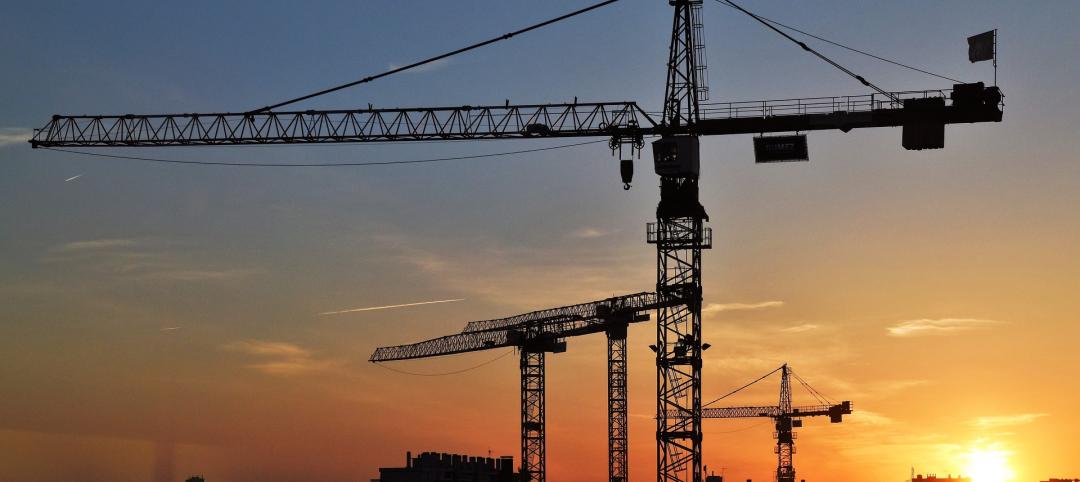The American Institute of Architects (AIA) is releasing strategies and illustrations today that can help senior living communities mitigate risk of COVID-19.
These resources were developed by a team of architects, AIA’s Design for Aging knowledge community, public health experts, and engineers, to assist with pivoting communities toward a more sustainable set of strategies that can reduce risk for residents and staff while creating a more comfortable way of life that is supportive of overall wellbeing.
In addition to the 3D model—produced by RLPS Architects—the team’s findings are detailed in a report for administrators, design professionals, and public officials. These strategies are meant to work in tandem with AIA’s other tools that can assist senior living communities with mitigation measures to safely resume activities and reopen closed spaces. These tools include a seven-step Risk Management Plan for Buildings for assessing hazards and applying strategies that reduce risk and the AIA’s Re-occupancy Assessment Tool, which provides a framework of strategies for making buildings safer.
Developing mitigation strategies is particularly critical for senior living communities, where risk is amplified. The primary risk of transmission is currently considered to be close personal contact, which could occur among residents, staff, and visitors predominantly in gathering areas, such as dining rooms or common areas, and during group activities. Visit AIA’s website to access the full report.
Resources were developed from a wide range of expertise and research using a virtual charrette workshop—a method used to study specific issues in a limited time frame using an intense brainstorming session.
As part of the sessions, a group of public, environmental, and occupational health experts and physicians provided an independently developed 90-minute briefing on SARS-CoV-2 infectious disease transmission, epidemiological models, and insights into the most current research of the virus as of May.
For more detailed information on public health hazards and considerations in senior living communities, see AIA’s COVID-19 emerging research and public health data.
Visit AIA’s website for more COVID-19 resources for architects.
Related Stories
Industry Research | Dec 28, 2022
Following a strong year, design and construction firms view 2023 cautiously
The economy and inflation are the biggest concerns for U.S. architecture, construction, and engineering firms in 2023, according to a recent survey of AEC professionals by the editors of Building Design+Construction.
Self-Storage Facilities | Dec 16, 2022
Self-storage development booms in high multifamily construction areas
A 2022 RentCafe analysis finds that self-storage units swelled in conjunction with metros’ growth in apartment complexes.
Market Data | Dec 13, 2022
Contractors' backlog of work reaches three-year high
U.S. construction firms have, on average, 9.2 months of work in the pipeline, according to ABC's latest Construction Backlog Indicator.
Contractors | Dec 6, 2022
Slow payments cost the construction industry $208 billion in 2022
The cost of floating payments for wages and invoices represents $208 billion in excess cost to the construction industry, a 53% increase from 2021, according to a survey by Rabbet, a provider of construction finance software.
Mass Timber | Dec 1, 2022
Cross laminated timber market forecast to more than triple by end of decade
Cross laminated timber (CLT) is gaining acceptance as an eco-friendly building material, a trend that will propel its growth through the end of the 2020s. The CLT market is projected to more than triple from $1.11 billion in 2021 to $3.72 billion by 2030, according to a report from Polaris Market Research.
Market Data | Nov 15, 2022
Construction demand will be a double-edged sword in 2023
Skanska’s latest forecast sees shorter lead times and receding inflation, but the industry isn’t out of the woods yet.
Reconstruction & Renovation | Nov 8, 2022
Renovation work outpaces new construction for first time in two decades
Renovations of older buildings in U.S. cities recently hit a record high as reflected in architecture firm billings, according to the American Institute of Architects (AIA).
Market Data | Nov 3, 2022
Building material prices have become the calm in America’s economic storm
Linesight’s latest quarterly report predicts stability (mostly) through the first half of 2023
Building Team | Nov 1, 2022
Nonresidential construction spending increases slightly in September, says ABC
National nonresidential construction spending was up by 0.5% in September, according to an Associated Builders and Contractors analysis of data published today by the U.S. Census Bureau.
Hotel Facilities | Oct 31, 2022
These three hoteliers make up two-thirds of all new hotel development in the U.S.
With a combined 3,523 projects and 400,490 rooms in the pipeline, Marriott, Hilton, and InterContinental dominate the U.S. hotel construction sector.

















